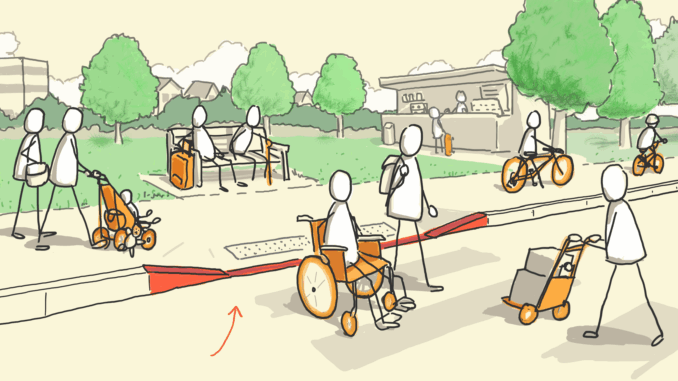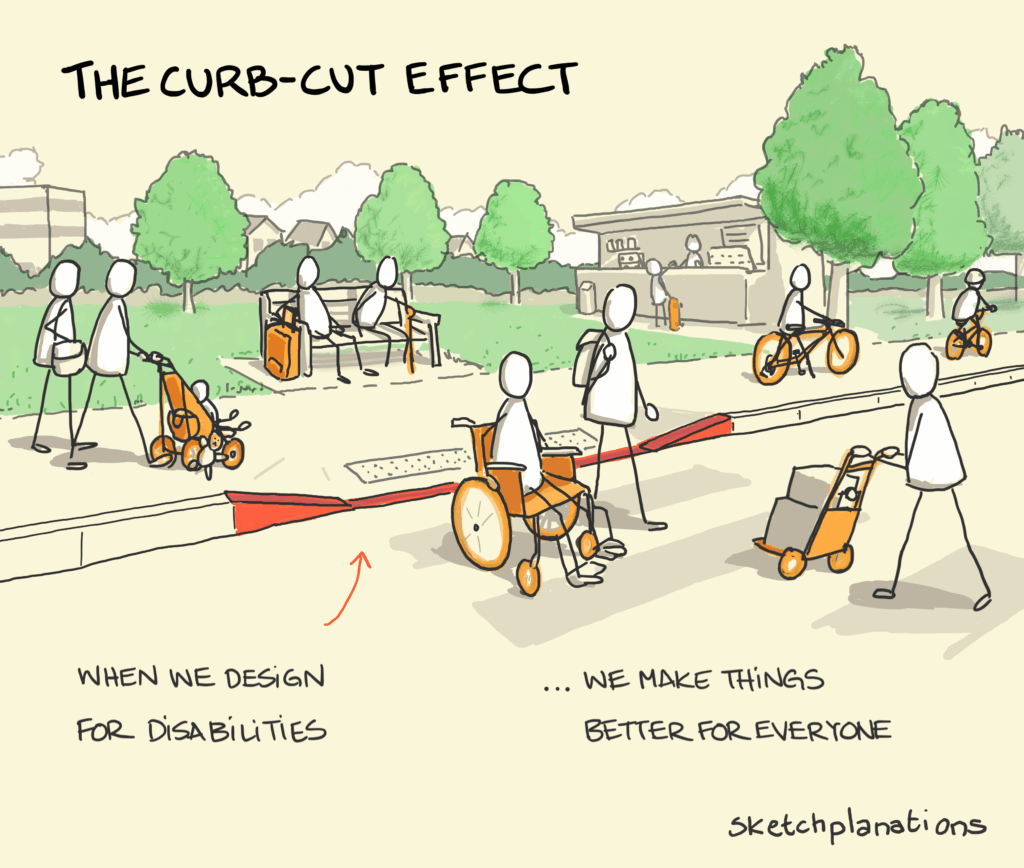
The curb-cut effect refers to when adjustments made for disabled people end up helping everyone.
The term was coined by Angela Glover Blackwell. Blackwell wrote in 2017 in the Stanford Social Innovation Review about how curb cuts – ramps cut into sidewalks – were introduced for people in wheelchairs, but they ended up helping other people, like parents with prams and travellers with luggage.
The curb-cut effect also applies in areas like employment. In Episode 3 of AFTRS FM, I found out that flexible working arrangements and hours are some of the biggest things that could make it easier for neurodivergent people to work in creative industries – but these are also some of the biggest things that could help parents and people with caring responsibilities to sustain employment.
Implementing accessibility measures in employment would increase economic participation across society – and in arts and media, that would mean a greater range of people telling their own stories in their own words.
Listen to AFTRS FM Episode 3: Careers, to hear about employment for neurodivergent people in creative industries.

Image by Sketchplanations, used under CC BY-NC 4.0.

Leave a Reply